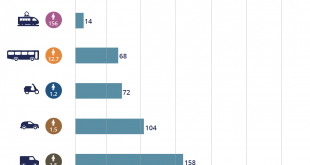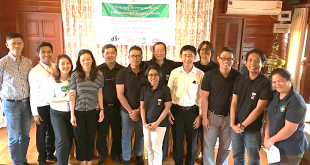
Promotion of walking and cycling is included in a National Development Plan for the very first time
In the Royal Gazette (Thailand’s official publication where a new law is announced) Volume 133 dated 30th December 2016, Office of the National Economic and Social Development Board under the Prime Minister Office published the 12th National Economic and Social Development Plan (NESDP) to be effective from 1st October 2016 to 30th September 2021.
This NESDP is to be implemented with 10 strategies of which No.7 is Development of Infrastructure and Logistics. There are six development guidelines for this strategy. The first one is Development of Transport Infrastructure with several sub-sets. A sub-set, “Development of Public Transport Systems in Urban Area”, states that:
“Develop infrastructure and facilities to support Non-Motorized Transport (NMT), paying attention importantly to development of crossings, footpaths and bikeways, in urban areas where NMT can connect with public transport systems. Create safety standards and protection for commuters who walk and cycle in urban area in order to increase proportion of non-motorized transport in transport as a whole, which would increase efficiency of energy use and is environmentally friendly. In addition, further development of infrastructure must take into consideration convenience of all groups of users, especially people with disability and elderly people by designing, developing an improving the state’s public infrastructure to facilitate and respond to all groups of users, enabling them to safely and efficiently use the infrastructure with the Universal Design principle.”
Promotion of walking and cycling also appears in Strategy No.9, “Development of Regions, Towns and Economic Areas” which prescribes three development guidelines. The second set of guidelines, “Town Development”, contains five main directions of development. The third one is stated as below:
“Develop public transport systems in urban areas to mitigate traffic problems and provide to the people access to public transport systems that require low cost of investment and is environmentally friendly, putting emphasis on bus system, bikeway system, footpaths and development of public transport stations in urban areas with a principle that convenience and safety of people in all age groups and people with disability must be promoted together with connectivity between urban and rural areas.”
It is for the first time in more than fifty years since Thailand’s first National Development Plan came into existence in 1961 that promotion of walking and cycling as non-motorized transport, not just a form of exercise or means for recreation, is included in the plan. Promotion of walking and cycling in everyday life again becomes a public policy in Thailand. Although content-wise, not much is described, promotion of walking and cycling has become a part of the country’s development policy as a whole. This is different from Resolution 5.1 of the 5th National Health Assembly B.E. 2555 (2012), which has also turned promotion of walking and cycling in everyday life into a public policy, because the resolution as a whole is all, and thus give more details, about promotion of walking and cycling in everyday life, but it just came from, and is based on, health promotion approach.
Thailand Cycling Club (TCC) has been promoting cycling in everyday life since it was established 25 years ago and actively advocated it to become a public policy in the last five years. To be more effective, this task is now mainly taken over by a newly registered foundation, Thailand Walking and Cycling Institute (TWCI). Credit for the success that promotion of walking and cycling in everyday life has become a public policy, however, must be given not only to TCC, which has acted as a lead agency, but also to bicycle users, private sector and government agencies, especially local administrative organizations, all over the country that recognize its significance and joined hand to promote it as well.
Gawin Chutima
Committee Member, Thailand Cycling Club & Thailand Walking and Cycling Institute
 ชมรมจักรยานเพื่อสุขภาพแห่งประเทศไทย ชมรมจักรยานเพื่อสุขภาพแห่งประเทศไทย
ชมรมจักรยานเพื่อสุขภาพแห่งประเทศไทย ชมรมจักรยานเพื่อสุขภาพแห่งประเทศไทย



